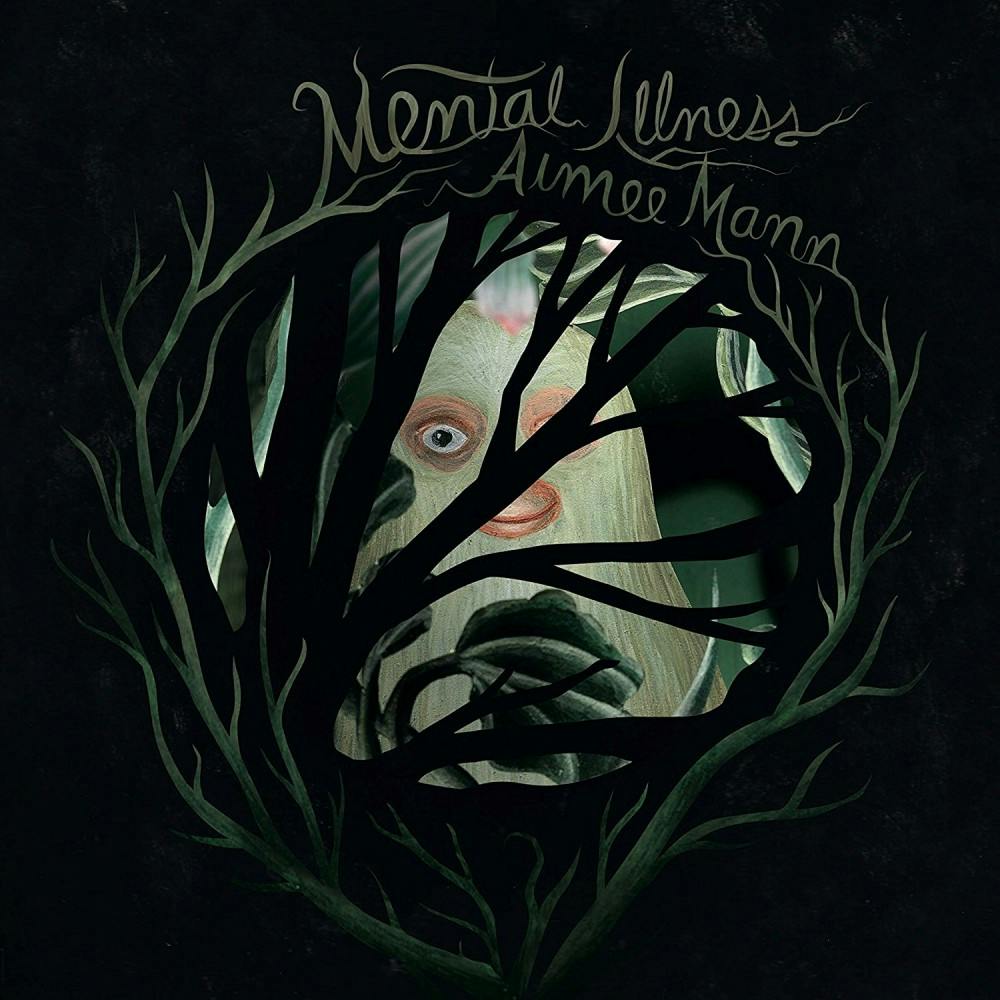Top Tracks:
“Goose Sow Cone”
“You Never Loved Me”
“Good For Me”
”Simple Fix”
Other Members of the Mental Illness Family:
Conor Oberst: Ruminations
Sam Bean & Jesca Hoop: Love Letter for Fire
Father John Misty: Pure Comedy
Aimee Mann’s previous eight releases were a frustrating mirage of beauty. Though certainly effective and noteworthy in their substance, many critics claimed that the singer/songwriter was producing in the shadows of musicians much greater. Musicians like Joanie Mitchell, Chrissie Hynde, and, you know it’s coming, Sarah McLaughlin. Mental Illness, however, is a miraculous result of vintage Mann songwriting, coming-of-age lyrics, and innovative guitars. At 56, Ms. Mann appears to have finally and unequivocally sectioned off her own part in the folk rock scene.
Mood: a masterpiece at long last
Aimee Mann had never truly perfected mood on her previous releases. Albums such as Lost in Space and Charmer hinted at the rustic, pastoral feel of Mental Illness, but both still maintained the coffee shop/library aesthetic that many of her critics ridiculed her on. However, Mental Illness blends rhythmic guitars, heartfelt lyrics, and Mann’s Earthy voice into a collection of tracks that could all serve as soundtracks to Mann’s Virginia upbringing. Take the first track, “Goose Sow Cone”, a track that features a simple, yet consistent guitar loop, no percussion, and Mann at her songwriting peak. “Goose Sow Cone” emulates a meticulous rhythm that feels almost like a river. The lack of percussion isn’t exactly a new innovation for Mann, I’m With Stupid featured minimal percussion, but it’s this album’s timing that truly empower the lack of drums.
Meaning: (shhh)
This album is understated in its meaning. Mann says a lot without saying much at all very loudly. Songs like “Patient Zero” and “Stuck in the Past” use minstrelization in a measured, yet cautionary manner. It’s not clear if Mann’s talking to the listener or a younger self. On this album she warns against being cheated, being modified, and losing one’s identity. Oddly enough, the slightly stylistic shift for Mann on this album nearly imply that she’s talking to herself. Previous Mann releases were decidedly more commercial and accessible, hence the numerous and overdone comparisons. On this record though, Mann preaches a sermon of individualism, and maybe even rediscovering oneself. Mann implies on Mental Illness that it was she that was lost, and sold out for radio stations and Billboard lists meanwhile her artistic value and individual status was nullified. Simple and peaceful as Mental Illness may sound, the record is a supremely effective portrait of what the popular music industry can do to the alternatively talented. Aimee Mann is an escaped prisoner, and Mental Illness is her memoir of her time held captive.
Odes: Mann dabbles, dabbles, and, dabbles some more
On her past recordings the comparisons to Sarah McLaughlin were omnipresent, yet true. I’m With Stupid and Whatever featured many of the same vocal melodies and instrumental constructs that McLaughlin employs to measured success. Furthermore, Mann’s apparent thematic nods to Joanie Mitchell also drew head shakes and eyebrow raises from the critics. Mental Illness, though, contains many homages and allusions to other artists while not overtaking Aimee’s newfound sound and mood. Actually, Mental Illness is coated in borrowed guitar sections and rhythms. “Goose Sow Cone” features a guitar melody that sounds like an Iron and Wine B-side. Her vocals, while still Mannian, sound like a vocal child of Father John Misty and the previously mentioned McLaughlin. However, Mann’s themes and aesthetics on this album are reminiscent of no singular artist, an occurrence that finally marks a new era for the underappreciated songstress.

All Images From: Pop Justice
Graphic by: Daley Wilhelm
For more entertainment related content, visit us at Byte Bsu!



















